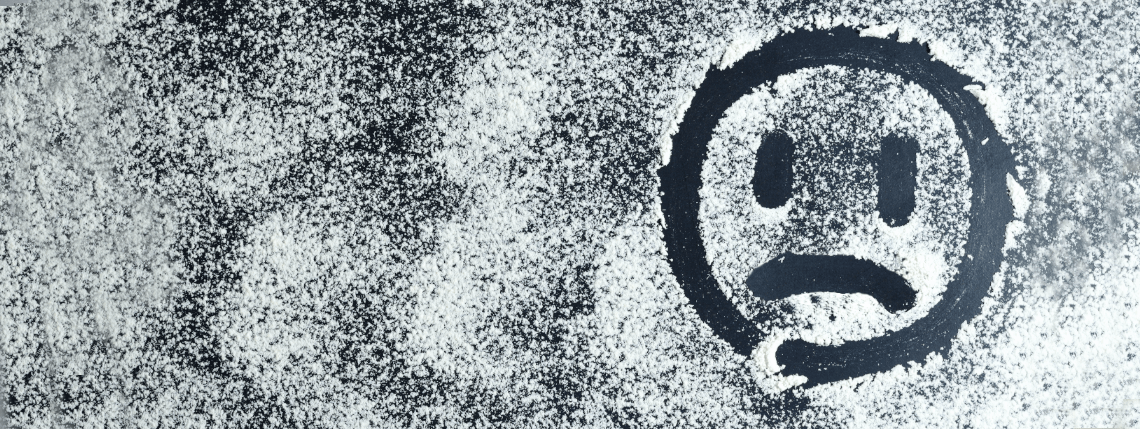You may be feeling more stressed, anxious or depressed due to how this pandemic has affected your life recently. However, as we now move into the colder months you may be feeling a type of depression caused by the changing of seasons, seasonal affective disorder.
What is seasonal affective disorder (SAD)?
Seasonal affective disorder (SAD) is a type of depression that occurs in particular seasons. It’s more common in winter, as we adjust to the change in seasons and feel lower in mood and energy.
What are the symptoms of SAD?
Typical symptoms of seasonal affective disorder include:
- low mood
- lacking energy
- sleeping for longer and struggling to get up in the morning
- overeating
- not enjoying things you usually do
- difficulty with concentration and memory.
The severity of symptoms vary from one person to another. Some people might just find it harder to get out of bed on dark, chilly mornings whilst others find that their symptoms have a big impact on their daily life.
What causes SAD?
It’s not known exactly what causes SAD, but it’s thought to be linked to shorter days and less exposure to sunlight in the winter months.
It’s not unusual for older people to notice symptoms for the first time if they start to spend more time indoors due to health or mobility problems.
How is SAD treated?
If you’re struggling to cope with symptoms of SAD, you should visit your doctor. They may ask you questions about your mood, lifestyle, eating and sleeping habits, and the seasonal pattern of your symptoms.
Treatment available includes cognitive behaviour therapy (CBT), where you talk to a trained therapist to help change the way you think and feel about situations. You could try light therapy, which involves sitting in front of a special lamp that mimics sunlight. Your doctor can also prescribe antidepressants, which can help lift your mood.
Speak to your GP about the risks and benefits of different treatments.
What can I do to help myself?
As the nights draw in and the mornings get darker, it can make even those of us with the sunniest dispositions feel a little glum. But there are lots of simple things you can do which might help boost your mood.
Get natural sunlight
Getting outside in the natural sunlight as much as possible can help boost your mood. Even a short daily walk can help.
If you find it hard to get out, try and make your home as bright as possible by opening the curtains and sitting near the window.
Stay active
Regular activity, especially outdoors on a bright day, can help with symptoms of low mood and depression.
Connect with others
Winter can make us feel more isolated, but there are lots of ways to keep in touch. From email and text message to a good old-fashioned post, try to find ways to reach out to friends and family.
Age UK’s Call in Time service offers anyone over 60 the opportunity to receive a weekly phone call from a like-minded volunteer. It’s a great way to make a new friend and enjoy regular conversation.
Have things to look forward to
There’s still lots to look forward to at this time of year. Christmas, Hanukah, Diwali… this time of year is full of celebrations, bringing colour, light and laughter to darker days.
If finding things to enjoy about winter proves too much, keep in mind that spring will come – and with it warmer weather, the first spring blooms, and green leaves on the trees.
Get cosy
There’s nothing like a hearty stew or steaming bowl of soup to make you feel cosier on a dreary day. And it’s really important to eat well through the winter months. Why not try some of these tasty recipes
If winter means you tend to stay indoors more, keeping busy with hobbies can help keep your mind active. Books can be a wonderful way of transporting yourself to another place and lifting your spirits. There are even services that deliver books and audio books to your door. See if the Royal Voluntary Service runs one where you live.
Speak to your doctor
There’s no need to feel embarrassed about struggling emotionally. If you’re feeling low or out of sorts, don’t keep it to yourself.
This article was provided by Age UK and more information on SAD is available HERE
Where next, explore some ways to deal with your pandemic stress HERE







